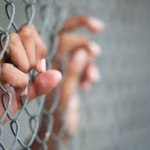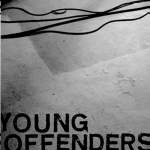 In Australia anybody or persons under the age of 18 cannot be tried or sentenced to any form of imprisonment by the standard legal system such as the magistrates Court. If a person under the age of 18 has committed some kind of crime or offence they must be dealt with in the children’s Court. If a person under the age of 18 is found guilty of an offence that carries some form of prison sentence, they will be mandatorily sent to a youth detention centre. If a minor sentenced to a period of detention that overlaps them turning 18 day will carry out the remainder of their sentence in an adult prison facility.
In Australia anybody or persons under the age of 18 cannot be tried or sentenced to any form of imprisonment by the standard legal system such as the magistrates Court. If a person under the age of 18 has committed some kind of crime or offence they must be dealt with in the children’s Court. If a person under the age of 18 is found guilty of an offence that carries some form of prison sentence, they will be mandatorily sent to a youth detention centre. If a minor sentenced to a period of detention that overlaps them turning 18 day will carry out the remainder of their sentence in an adult prison facility.
Any decision by a Children’s Court on what to do with a young person found guilty of an offence is limited by the sentencing options which are available to the court. Sentencing hierarchies have been established in most legislation, setting out the available penalties in order of severity with the aim of promoting the use of non-custodial options and to reinforce the use of detention as a sentence of last resort. Sentencing juveniles
As you can see from the information above from the Australian Institute of criminology that the purpose of children’s Court is to defer custodial sentences and to reinforce detention as part of the punishment for committing crimes. Of course these laws vary from state to state and also can vary in their severity depending on the type of crime committed.
In the case of minor crimes often a community service order is issued to the offender and they’ll have to carry out some kind of unpaid work usually for a charitable organisation or with some kind of committee service work program.
There are also other state specific laws that could include such things as:
- dismiss charge and administer caution
- impose fine
- release on probation
- refer to conference
- charge dismissed
- referred to drug assessment and education session
- other orders including restitution and/or compensation
One of the downsides of the juvenile criminal justice system is that often young people who don’t know any better or in some form of crisis are branded a criminal which can have detrimental consequences especially in later life.
Community Support.
 In many towns in communities across Australia there is a great move towards preventing young crime before to happens.
In many towns in communities across Australia there is a great move towards preventing young crime before to happens.
Disengaged youth has become a real problem and we see plenty of community centres popping up around the place that get young people involved in activities after school and on the weekends that keep them out of trouble.
Socio economic pressures on young people lead to an increase in crime and drug use. there is also great pressure from the peer group in some cases to act out and prove yourself to become accepted. The combination of counselling and social work many disengaged youth can be turned around and start to engage in positive social activities and behaviours and this is the intention of the court.
Disclaimer: While we have made every effort to ensure the accuracy of this article, it is not intended as legal advice. All individual circumstances will differ and such should be discussed with a lawyer.
